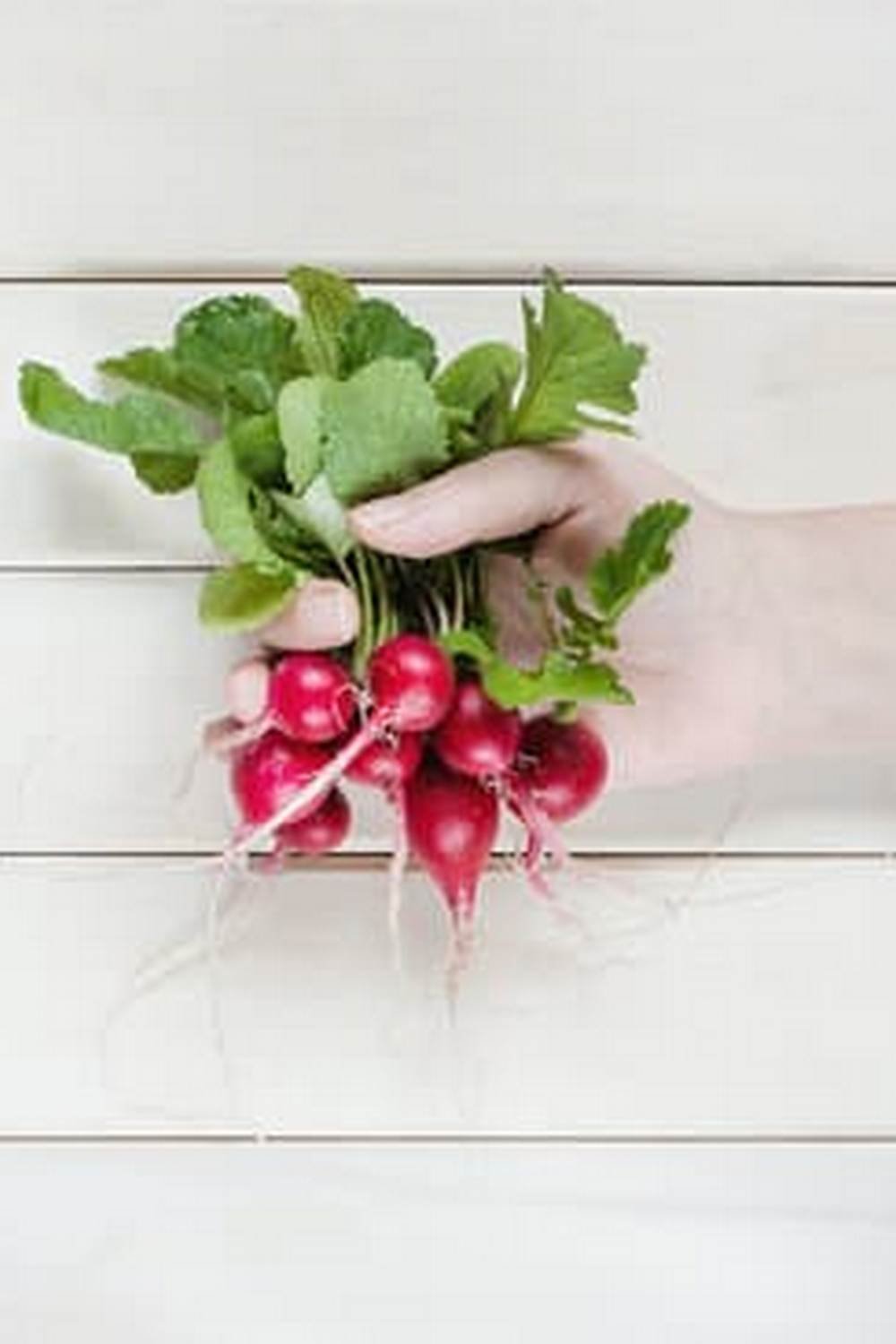Vegetable gardens are a source of fresh and nutritious produce, but they can also attract a wide range of pests that threaten the health and productivity of the plants. While chemical pesticides may seem like a quick fix, they can have negative impacts on both the environment and our own health. That’s why more and more vegetable gardeners are turning to organic pest control methods to keep their crops safe and healthy.
In this article, we will explore the importance of organic pest control for vegetable gardens and discuss various techniques and strategies to effectively manage pests without the use of harmful chemical pesticides. We will delve into the common pests that affect vegetable gardens, highlighting their characteristics and behaviors so that you can identify them in your own garden.
The benefits of organic pest control go beyond just protecting your vegetables from damage. By favoring natural methods over chemical pesticides, you contribute to a healthier ecosystem by preserving beneficial insects, soil quality, and water sources. Organic pest control is not only safer for the environment but also for your family, as it reduces exposure to potentially harmful chemicals in food.
Join us as we delve deeper into the world of organic pest control for vegetable gardens. From prevention techniques to natural pest control methods and homemade recipes, this comprehensive guide aims to provide you with all the necessary knowledge and tools to create a thriving garden while promoting sustainability. Let’s empower ourselves as gardeners by choosing organic solutions that promote a healthier and more sustainable future for our vegetable gardens.
Understanding common pests in vegetable gardens
Common pests can wreak havoc on vegetable gardens, causing damage to plants and reducing overall yields. It is important for gardeners to have a thorough understanding of these pests in order to effectively manage their presence in the garden. By being able to identify and describe the most common pests, gardeners can implement appropriate pest control measures and protect their vegetable crops.
One of the most notorious pests in vegetable gardens is the aphid. These small insects feed on the sap of plants, causing leaves to curl and plant growth to become stunted. Aphids reproduce rapidly, making it crucial to address their infestations early on. Another commonly encountered pest is the tomato hornworm. These large green caterpillars can quickly devour tomato plants, leaving behind defoliated stems and fruits with visible bite marks.
Other common pests in vegetable gardens include cabbage worms, slugs, and snails. Cabbage worms are voracious eaters that target brassicas such as cabbage, broccoli, and kale. They can quickly decimate entire plants if not controlled. Slugs and snails are particularly problematic in damp environments where they feed on young seedlings, tender leaves, and ripening fruits.
By familiarizing themselves with these common pests, gardeners can take proactive measures such as monitoring plants regularly for signs of infestation or implementing physical barriers like netting or row covers to prevent these pest insects from damaging their crops.
| Pest | Description |
|---|---|
| Aphids | Small insects that feed on sap; cause curled leaves and stunted growth. |
| Tomato Hornworms | Large green caterpillars that consume tomato plants; leave defoliated stems and bite marks on fruits. |
| Cabbage Worms | Eat brassicas like cabbage, broccoli, and kale; can quickly destroy entire plants. |
| Slugs | Feed on young seedlings, tender leaves, and ripe fruits; active in damp environments. |
| Snails | Similar to slugs in feeding habits and preferences; inflict damage to plants in damp conditions. |
By having knowledge of these pests, gardeners can equip themselves with the necessary information to effectively combat their presence in vegetable gardens using organic pest control methods.
The importance of organic pest control
Organic pest control is a vital component in maintaining the overall health and sustainability of vegetable gardens. It offers numerous benefits compared to conventional pesticide use, which can have negative effects on the environment, human health, and the long-term viability of vegetable crops. This section will delve into why organic pest control is crucial and outline the advantages it brings to vegetable gardening.
Environmental Benefits
One of the primary reasons for choosing organic pest control methods is their minimal impact on the environment. Unlike conventional pesticides that often contain harmful chemicals, organic pest control relies on natural compounds and processes to manage pests. By avoiding synthetic chemicals, organic pest control methods reduce pollution and prevent soil, water, and air contamination. This helps maintain a healthy ecosystem within and around the vegetable garden, ensuring the safety of beneficial insects, wildlife, and even neighboring habitats.
Health Benefits
The use of organic pest control methods in vegetable gardens promotes human health by minimizing exposure to toxic chemicals. Conventional pesticides have been linked to various health issues such as respiratory problems, skin irritation, hormonal disruptions, and even certain types of cancer.
Organic pest control solutions are generally safe for humans and pose little risk when used properly. This not only protects the gardener but also ensures that vegetables grown in an organic garden are free from harmful residues that could be ingested during consumption.
Sustainability Benefits
Another fundamental aspect of organic pest control is its focus on sustainable practices. Vegetable gardens maintained with organic methods foster ecological balance by valuing biodiversity and natural processes.
Instead of relying solely on pesticides that can harm beneficial insects like pollinators or disrupt soil microorganisms, organic approaches prioritize prevention techniques that enhance the garden’s resilience over time. By utilizing companion planting strategies or implementing crop rotation plans, gardeners can reduce dependence on external inputs while building healthy soil structures that support long-term plant growth.
Prevention techniques
One of the most effective ways to keep pests away from your vegetable garden is by implementing prevention techniques. These strategies can help deter pests from infesting your plants, reducing the need for more aggressive pest control methods. Here are some tips and strategies for preventing pest infestations in your vegetable garden:
Companion planting
Companion planting involves growing certain plants together that benefit each other in some way. Some plants have natural properties that repel pests or attract beneficial insects, which can help control the population of harmful insects. For example, planting marigolds alongside vegetables like tomatoes and peppers can deter aphids and other harmful insects. Research companion plant pairings specific to your vegetable garden to maximize its benefits.
Crop rotation
Crop rotation is a technique where you change the location of your crops each growing season. This practice helps prevent the buildup of pests that may be specific to certain plants or families of plants in one area of your garden.
By rotating crops, you make it harder for pests to find their preferred hosts year after year. A four-year cycle is often recommended, where you group plants into different families (such as nightshades or cucurbits) and move them around your garden beds annually.
Mulching
Mulching has multiple benefits for a vegetable garden, including weed suppression and moisture retention. However, it can also act as a physical barrier against certain pests. Organic mulch materials like straw or leaves can make it more challenging for slugs and snails to reach your plants, as they dislike crawling over rough surfaces.
Proper watering and fertilization
Maintaining proper watering and fertilization practices is essential for keeping your plants healthy and resilient against pests. Overwatering can lead to root rot and attract pests like fungus gnats, while underwatering can weaken your plants, making them more susceptible to infestations. Additionally, excessive nitrogen fertilization can stimulate lush foliage growth, which can attract pests. Follow watering guidelines for your specific vegetables and use organic fertilizers in moderation.
By implementing these prevention techniques, you can create a less inviting environment for pests in your vegetable garden. Remember that a healthy and diverse garden ecosystem is the key to natural pest control.
Natural pest control methods
Natural pest control methods offer a safe and environmentally-friendly approach to managing pests in vegetable gardens. By utilizing these methods, gardeners can effectively control pest populations without resorting to harmful chemicals that can damage the environment or pose risks to human health. There are several natural and non-toxic methods available for controlling pests in vegetable gardens.
One effective natural method is introducing beneficial insects into the garden. Beneficial insects play a crucial role in controlling pest populations by preying on them or parasitizing them. Ladybugs, lacewings, and praying mantises are examples of beneficial insects that feed on common pests such as aphids, caterpillars, and spider mites.
To attract these helpful insects to the garden, homeowners can plant flowers that provide nectar and pollen as food sources for them. Additionally, creating habitats such as bug hotels will provide shelter for these beneficial insects.
Another natural pest control method involves using natural repellents. Certain plants emit odors or oils that naturally repel pests. For instance, planting marigolds around vegetable plants can deter nematodes, while basil can keep away mosquitoes and flies. Some herbs like rosemary and mint also repel ants and aphids. By strategically placing these plants throughout the garden, gardeners can create a natural barrier against pests.
Aside from introducing beneficial insects and using natural repellents, there are other natural pest control methods worth exploring. Physical barriers like netting or row covers can protect crops from flying insects or larger pests like rabbits or birds. Traps are another option, including sticky traps for flying insects or pheromone traps for specific pests like fruit flies or moths.
Using these various natural methods allows gardeners to maintain a balance between pests and beneficial organisms in the ecosystem of their vegetable gardens without harming the environment or compromising the quality of their produce. By adopting these techniques, gardeners can ensure their vegetables thrive while minimizing damage from unwanted pests.
Homemade organic pest control recipes
Homemade organic pest control recipes offer a cost-effective and environmentally-friendly way to combat pests in vegetable gardens. By using simple ingredients found in most households, gardeners can create effective pest control solutions without the need for harmful chemicals. Here are some step-by-step instructions for creating homemade organic pest control solutions using common household ingredients.
One popular homemade organic pest control recipe is a garlic spray. Garlic is known to repel a wide range of pests, including aphids, beetles, and caterpillars. To make a garlic spray, begin by peeling and crushing several cloves of fresh garlic. Next, add the crushed garlic to a container with water and let it steep overnight.
Then, strain the liquid into a spray bottle and add a few drops of dish soap. The soap helps the solution adhere to the plants. To use the garlic spray, generously mist your vegetable plants, paying special attention to the undersides of leaves where pests often hide.
Another effective homemade pest control solution is a vinegar spray. Vinegar is acidic and can help eliminate pests such as slugs and snails that are common in vegetable gardens. To make a vinegar spray, combine equal parts white vinegar and water in a spray bottle. You can also add a few drops of dish soap to improve effectiveness. Shake well before each use and apply directly to the pests or around the base of your plants where they may crawl.
For those dealing with fungal diseases like powdery mildew or black spot, a baking soda solution can be an excellent natural remedy. Mix one tablespoon of baking soda with one quart of water in a spray bottle and shake until dissolved. Adding a small amount of horticultural oil or liquid soap can enhance its effectiveness against fungus spores as well. Spray this solution onto affected areas when temperatures are cooler during early morning or evening hours.
These homemade organic pest control solutions provide safe alternatives to chemical pesticides while still effectively managing pests in your vegetable garden. Remember to properly label and store any leftover spray solutions for future use, keep them away from children and pets, and only apply as needed to avoid harm to beneficial insects. Experimenting with different recipes may help you find the most effective solution for your specific pest problems while supporting a healthy and thriving vegetable garden.
Integrated pest management
Integrated pest management (IPM) is a comprehensive approach to pest control that aims to minimize the use of chemicals while effectively managing pests in vegetable gardens. It involves the integration of various strategies, including organic methods and environmentally-friendly pesticides, to achieve long-term control and sustainable practices.
Understanding Integrated Pest Management
IPM focuses on preventing and managing pests by considering their biology, ecology, behavior, and environmental impact. The goal is to maintain the population of pests below the economic threshold level, where they cause significant damage to crops. This approach takes into account multiple factors that contribute to pest problems, such as weather conditions, crop rotation, cultural practices, and natural predators.
Implementing Integrated Pest Management in Vegetable Gardens
To apply IPM in vegetable gardens, gardeners need to follow certain steps. Firstly, it’s important to accurately identify the pests present in the garden through regular monitoring and observations. Once identified, gardeners can then determine the appropriate intervention method for each specific pest.
One key aspect of IPM is using biological controls or beneficial insects. These are insects that naturally prey on or parasitize pests, helping to keep their populations in check. Examples include ladybugs for aphid control or predatory nematodes for tackling soil-dwelling pests like grubs.
Additionally, when necessary, environmentally-friendly pesticides can be used in an IPM program. These pesticides are specifically chosen based on their low toxicity levels and minimal impact on non-target organisms and the environment. It’s crucial to follow label instructions carefully when using any pesticides and choose products that are approved for organic gardening if you want to maintain an organic garden.
By utilizing integrated pest management techniques in vegetable gardens, gardeners can effectively manage pests while minimizing harm to beneficial insects and the environment. The combination of organic methods with targeted pesticide applications ensures a balanced approach that promotes sustainability without compromising crop health or food safety.
Case studies
One of the most compelling reasons to choose organic pest control for your vegetable garden is the many success stories and positive experiences shared by vegetable gardeners who have adopted these methods. These real-life case studies demonstrate the effectiveness and benefits of using organic pest control techniques in maintaining a healthy and thriving vegetable garden.
For example, Wendy Johnson, an avid gardener from California, had struggled with persistent aphid infestations on her tomato plants. Frustrated with the limited success of chemical pesticides, she decided to explore organic alternatives. After researching various methods, Wendy introduced ladybugs, a natural predator of aphids, into her garden.
Within weeks, the ladybugs eliminated almost all of the aphids, leaving her tomato plants healthier than ever before. Inspired by this success, Wendy now utilizes beneficial insects like lacewings and parasitic wasps to keep her garden free from pests.
Another success story comes from Mark Rodriguez in Arizona. Mark had been battling a severe whitefly infestation on his squash plants for years without much luck using conventional pesticides. Determined to avoid harmful chemicals, he found that spraying a homemade garlic and chili pepper spray on his plants effectively repelled whiteflies while promoting plant health. As a result, Mark was able to harvest abundant squash crops while minimizing damage caused by whiteflies.
These case studies demonstrate that organic pest control techniques can be highly effective in combating common pests while promoting plant health and sustainability. By sharing these experiences, vegetable gardeners can inspire others to embrace organic pest control methods and help build a community of successful gardeners who prioritize the health of their gardens and the environment.
Frequently asked questions
As more gardeners seek to adopt organic methods of pest control in their vegetable gardens, it is important to address some common concerns and questions regarding the effectiveness and safety of these practices. Here are answers to a few frequently asked questions:
- Will organic pest control methods be as effective as synthetic pesticides?
- Are there any potential side effects when using organic pest control methods?
- Can organic pest control be used alongside other gardening practices?
While organic pest control methods may require more time and effort, they can be highly effective in managing pests in vegetable gardens. By implementing prevention techniques like companion planting and crop rotation, gardeners can reduce the chances of a pest infestation.
Additionally, natural deterrents and biological controls such as introducing beneficial insects can help keep pest populations in check. While some degree of damage may still occur, especially during peak pest seasons, organic methods can provide satisfactory results without the use of harmful chemicals.
One major advantage of organic pest control is its minimal impact on the environment and human health compared to synthetic pesticides. However, it is important to use all substances responsibly and according to instructions provided by trusted sources, such as reputable gardening organizations or extension services.
Some natural substances used in homemade remedies may cause skin irritation or allergic reactions in sensitive individuals, so it’s advisable to wear protective gloves when preparing or applying them. It’s also essential not to overapply any repellents or insecticides to prevent any harm to beneficial insects or unintended consequences.
Absolutely. In fact, integrating organic pest control methods with other sustainable gardening practices can lead to even greater success in maintaining a healthy vegetable garden. Combining techniques like composting for soil fertility and water-saving measures like mulching can create an ecosystem that supports natural predators while deterring pests from establishing themselves.
It is important, however, to choose organic gardening practices that are compatible with one another. For example, using a synthetic herbicide would contradict an organic pest control regimen and may harm beneficial insects or pollinators.
By addressing these frequently asked questions and concerns, gardeners can feel more confident in implementing organic pest control methods in their vegetable gardens. Remember to stay informed about the latest research and recommended practices from reputable sources to ensure the safety and effectiveness of your chosen methods. With patience and persistence, organic pest control can lead to healthier, more sustainable vegetable gardens with bountiful harvests.
Conclusion
In conclusion, organic pest control is a vital aspect of maintaining the health and sustainability of vegetable gardens. By understanding common pests and implementing prevention techniques, natural pest control methods, and integrated pest management strategies, gardeners can effectively protect their vegetables without harming the environment or compromising the quality of their crops.
One of the key benefits of organic pest control is that it promotes a healthier and more sustainable harvest. Unlike chemical pesticides that can leave residues on vegetables and harm beneficial insects, organic methods ensure that the produce is safe to eat. By using natural repellents, introducing beneficial insects, and employing companion planting and crop rotation techniques, gardeners can create an ecosystem that encourages biodiversity and minimizes the chances of infestations.
Furthermore, organic pest control methods contribute to overall environmental sustainability. Chemical pesticides not only kill pests but also pose risks to non-target organisms and pollute soil and water sources. In contrast, organic methods are non-toxic and work in harmony with nature. They promote the presence of beneficial insects like ladybugs and lacewings while minimizing negative impacts on other organisms in the garden ecosystem.
Therefore, it is strongly encouraged for readers to implement organic pest control methods in their own vegetable gardens. By following the prevention techniques outlined in this article, making use of natural repellents such as garlic or neem oil, creating homemade organic pest control solutions, and practicing integrated pest management when necessary, gardeners can enjoy a bountiful harvest while preserving the health of both their plants and the environment.
Frequently Asked Questions
What is the best organic pesticide for vegetable garden?
When it comes to choosing the best organic pesticide for a vegetable garden, there are several options that can help control pests effectively. Neem oil is one popular choice, derived from the neem tree, it acts as a natural insect repellent and disrupts the feeding and growth cycle of certain pests. Another option is pyrethrin, which is made from chrysanthemum flowers and provides broad-spectrum control against many garden pests.
Diatomaceous earth, composed of fossilized algae, works by physically damaging the exoskeletons of insects. Additionally, garlic oil or hot pepper spray can also be effective in repelling certain pests. Ultimately, the best pesticide will depend on the specific pest problem you’re experiencing in your vegetable garden.
How do I control pests in my vegetable garden naturally?
Controlling pests in a vegetable garden naturally requires proactive practices focused on prevention and maintaining a healthy ecosystem. To begin with, proper planning and spacing between plants can help deter pests by reducing overcrowding and improving airflow. Regularly inspecting your plants for signs of infestation enables early intervention before problems escalate.
Encouraging beneficial insects like ladybugs or lacewings that prey upon common garden pests can be achieved by planting attractive flowering plants nearby or providing appropriate habitats like insect hotels. Additionally, practicing companion planting, such as pairing marigolds with vegetables to repel nematodes, can help naturally deter pests. Crop rotation is another useful strategy to disrupt pest life cycles since some insects only target specific plant families.
What is a natural pesticide for vegetable plants?
Natural pesticides for vegetable plants come in various forms, offering effective pest control while minimizing harm to the environment and beneficial insects. One widely-used natural pesticide is insecticidal soap made from potassium salts of fatty acids; it kills soft-bodied insects like aphids and spider mites upon contact by disrupting their cell membranes without lingering toxicity afterwards. Another commonly used option is horticultural oil which suffocates insects by coating their bodies and blocking their spiracles.
Additionally, there are microbial-based pesticides, such as Bacillus thuringiensis (Bt), which targets specific pests like caterpillars or mosquitoes by releasing toxins that disrupt their stomachs upon ingestion. These natural pesticides can be applied according to the instructions on the label, ensuring their efficacy without compromising the health of your vegetable plants or surrounding environment.

If you’re looking to get into vegetable gardening, or are just looking for some tips on how to make your current garden better, then you’ve come to the right place! My name is Ethel and I have been gardening for years. In this blog, I’m going to share with you some of my best tips on how to create a successful vegetable garden.





